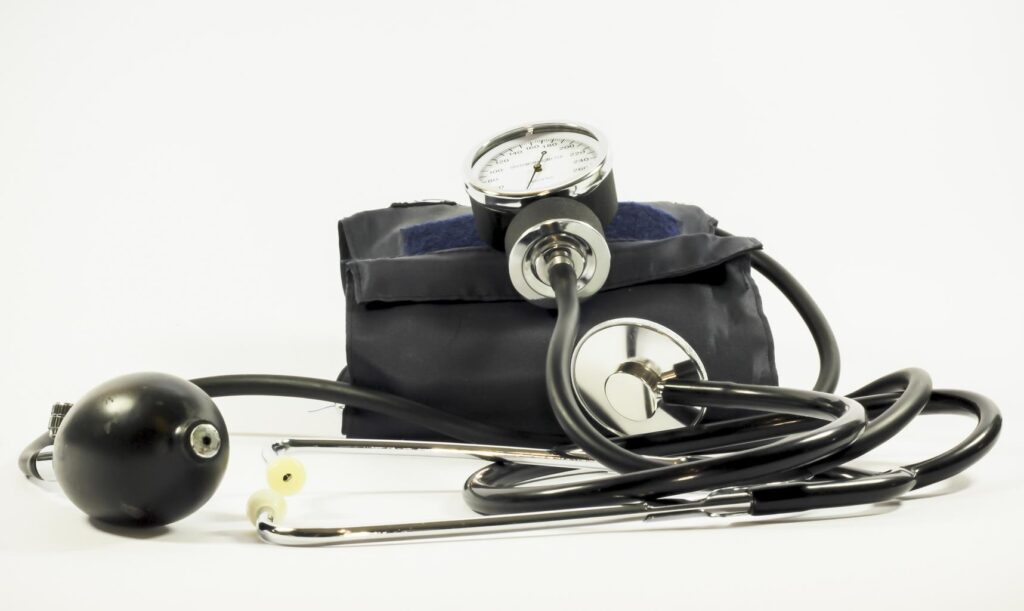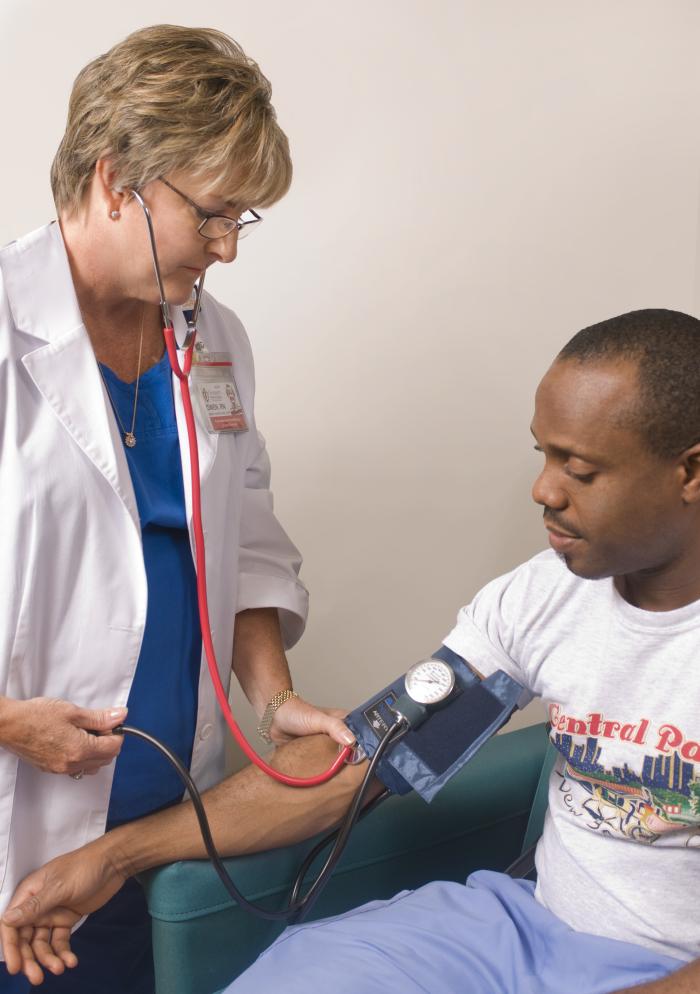
What is High Blood Pressure?
High blood pressure, also known as hypertension, is a common condition and is one of the leading causes of heart disease.
High blood pressure occurs when the force (pressure) of blood flowing through your blood vessels is consistently too high. Over time, this pressure can damage your arteries by making them less elastic, which decreases the flow of oxygen to your heart and leads to heart disease. High blood pressure can also cause the arteries that supply blood and oxygen to the brain to be blocked or burst, causing a stroke.
According to the American Heart Association, nearly half of American adults have hypertension – many without knowing. While there is no a cure for hypertension, you can take steps to lower your blood pressure and live a healthier life.
Symptoms of High Blood Pressure
Most of the time, patients with high blood pressure exhibit no symptoms. However, the symptoms of extremely high blood pressure include:
- Irregular heartbeat
- Difficulty breathing
- Fatigue or confusion
- Vision problems
- Pounding chest, neck, or ears
- Blood in Urine
- Severe headache
If you experience any of these symptoms, seek medical attention immediately. If you are experiencing a life-threatening emergency such as chest pain, trouble breathing, or stroke symptoms, dial 911 or go to the nearest emergency room.
People with high blood pressure often don’t know they have it. This is why high blood pressure is often referred to as the silent killer because it is usually symptomless. The best way to monitor high blood pressure is through regular check-ups with your healthcare provider.
What Should You Do If You’re Concerned About High Blood Pressure.

If you are worried about high blood pressure or have high blood pressure problems, contact your primary healthcare provider. Your family doctor can diagnose high blood pressure and make treatment choices by reviewing your systolic and diastolic blood pressure levels. Measuring your blood pressure is quick and painless.
If you’ve been diagnosed with high blood pressure, it’s important to work with your doctor and follow your treatment plan including taking medications as prescribed. Educate yourself about high BP and learn to know your numbers. Adopting a heart-healthy lifestyle can enhance the effectiveness of high blood pressure medicines, and lower your risk of heart failure, heart attack, sexual dysfunction, kidney disease, and stroke.
Knowing your numbers by checking your blood pressure regularly can alert you to any changes and help you detect patterns. Keeping track also helps to show you that the changes you made to lower your HPB (high blood pressure) are working.
Asymptomatic blood pressure can go undiagnosed for years and lead to other serious cardiovascular diseases. It’s important to keep your doctor’s appointment, including your annual wellness exam. Visiting your family doctor at least once a year – even if you don’t feel sick – will help to establish a baseline for your overall health and detect issues like high blood pressure early.
At River Bend Medical Associates, we are here to answer your questions about high blood pressure, help you create and manage your heart-healthy plan, and attend to any of your other coronary health concerns.
Managing your HBP is a lifelong commitment, but small changes can make a big difference in your blood pressure numbers.
How is High Blood Pressure Treated?
Your primary care doctor will help you with a treatment plan.
Treatment for high blood pressure may include:
- Home blood pressure monitoring
- Smoking cessation
- Exercise
- Low-salt diet
- Prescription medication
- Stress reduction
In some cases, hypertension is treated with medications. Depending on your condition, your family physician may prescribe more than one type of medication to treat your condition.

Some common blood pressure medications are:
- Beta-blockers
- Diuretics
- Renin-inhibitors
- Calcium channel blockers
- ARBs – Angiotensin II receptor blockers
- ACE inhibitors – Angiotensin-converting enzyme inhibitors
In some cases, hypertension is treated with medications. Depending on your condition, your family physician may prescribe more than one type of medication to treat your condition.
You may not feel like anything is wrong, but high blood pressure could be quietly causing damage that can seriously threaten your health. Hypertension can damage your blood vessels, heart, kidneys, and other parts of your body if it goes undetected and untreated. That is why knowing your blood pressure numbers and monitoring them regularly is essential.
When your blood pressure stays high over time, it can cause organ damage and lead to conditions such as:
- Stroke
- Heart failure
- Kidney failure
- Heart attack
- Vision changes or blindness
- Aneurysms
High blood pressure, or hypertension, is blood pressure that is consistently higher than normal. It is a common but serious condition that left untreated can lead to other health problems such as heart disease, kidney failure, or stroke.
The good news is, your healthcare provider can diagnose and treat your high blood pressure. By following your treatment plan and taking some simple steps, you have the power to lower your blood pressure.
If you have concerns about your blood pressure or cardiovascular health, we are here to help. Our primary healthcare team of family doctors, physician’s assistants, and nurse practitioners work together to diagnose high blood pressure early, find the causes, and work to help patients lower their blood pressure for the long term.
At River Bend Medical Associates, our team of medical professionals is highly skilled and dedicated to the healthcare needs of your entire family. From routine exams (that include blood pressure checks), to illnesses and injuries, we are here to provide comprehensive and continuous care for you and your loved ones.


